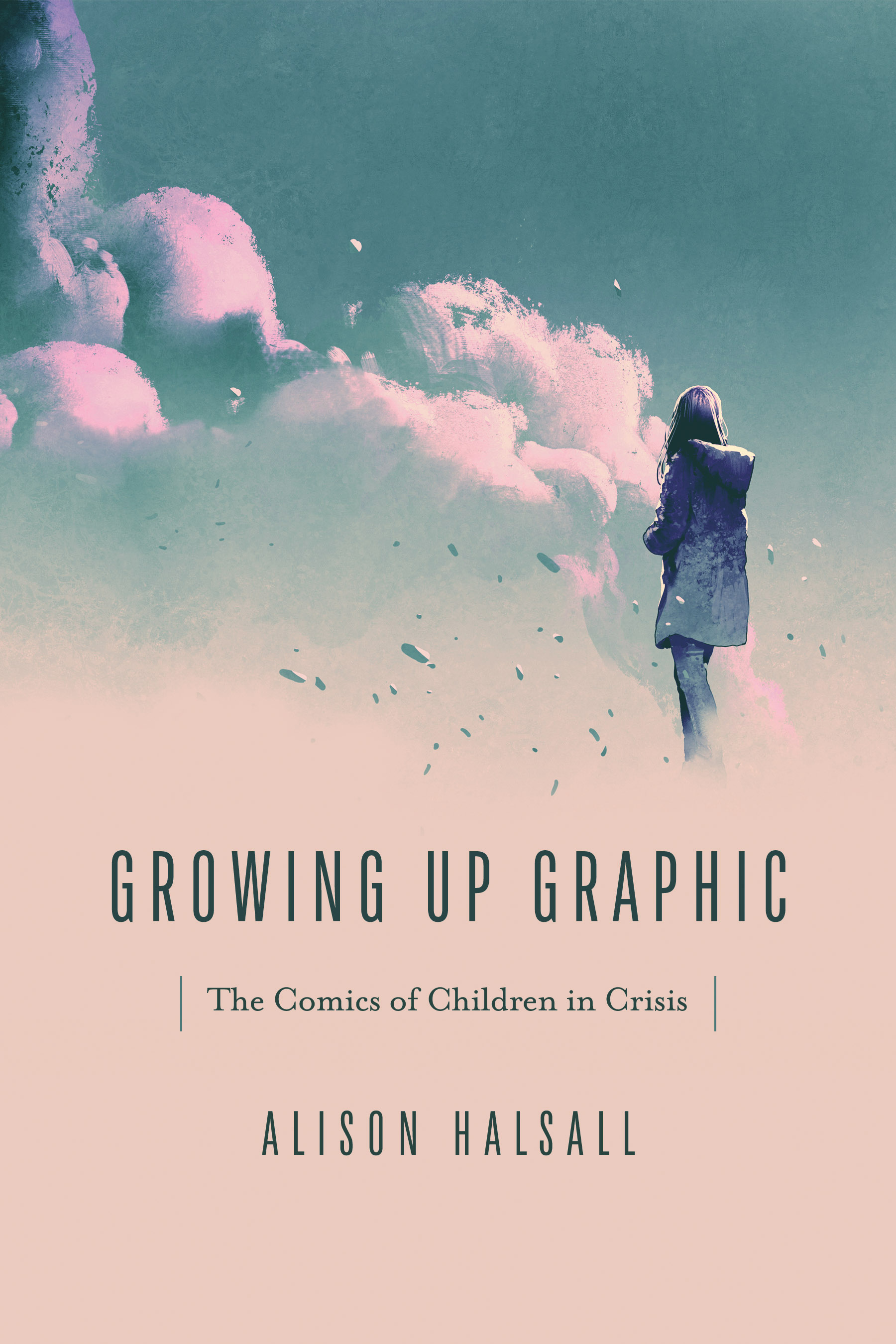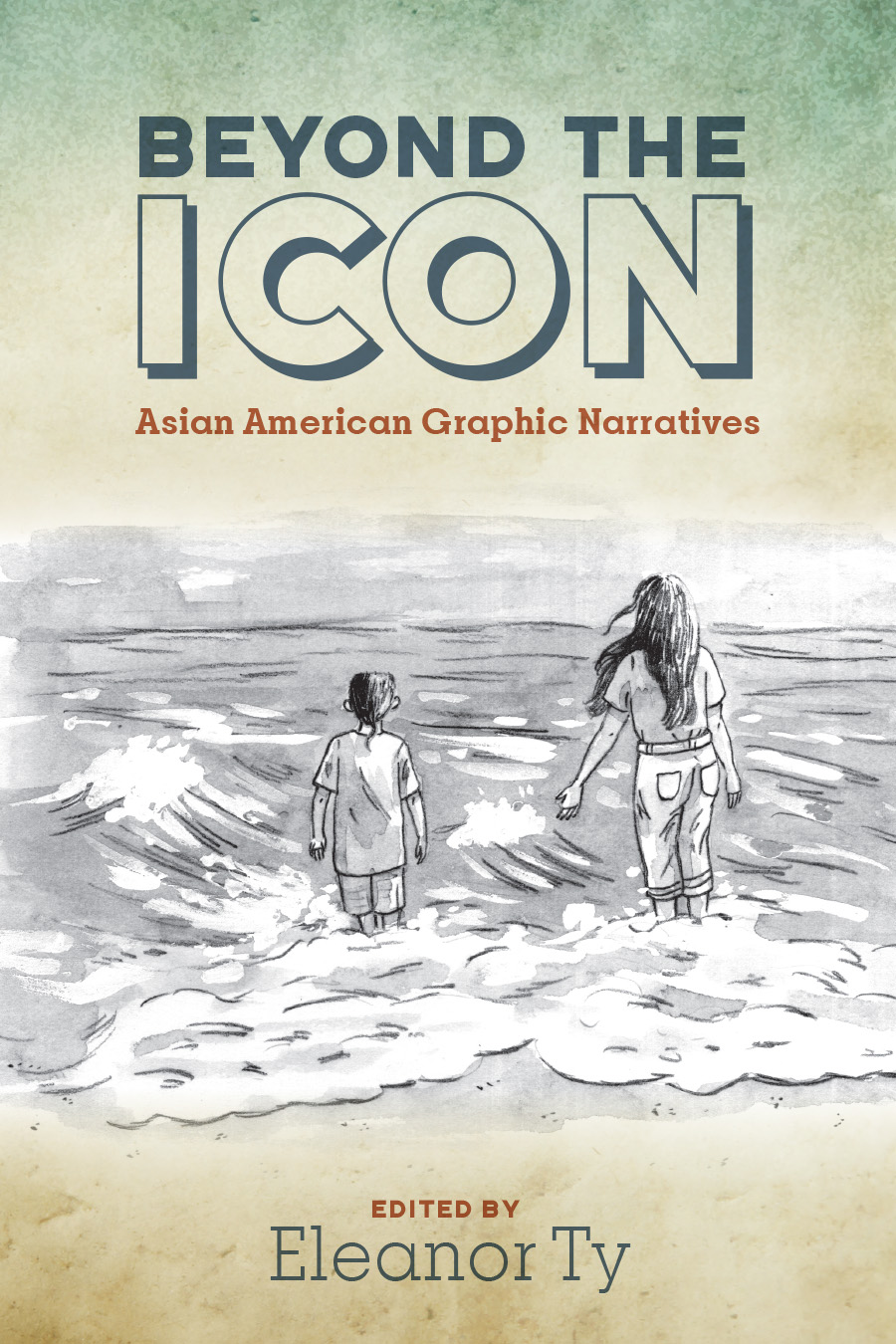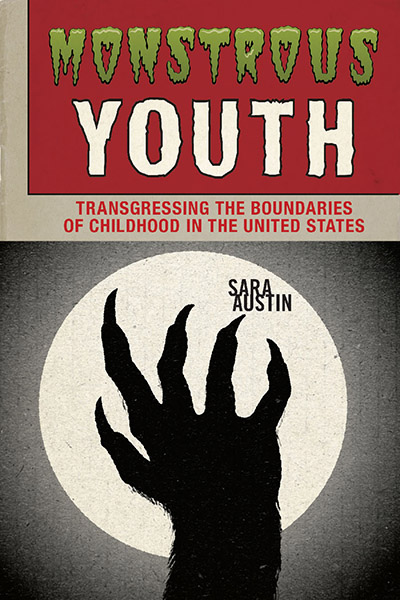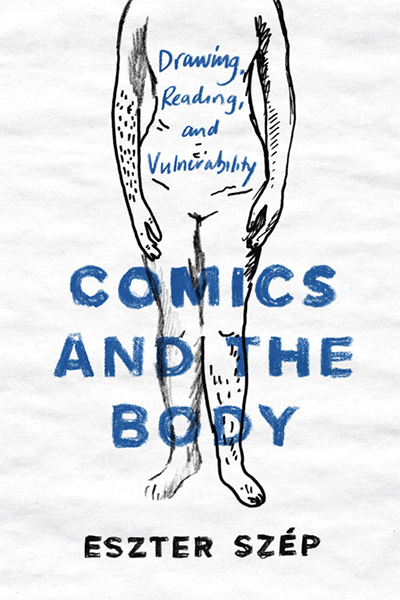Honor Book, 2025 Children’s Literature Association Book Award
“Halsall seeks to enrich comics scholarship by bringing to it a deep understanding of childhood’s many narrative and political entanglements—a task that is timely and compelling. ... The book provides a wealth of insights and opportunities to continue the conversation, and in this way, it can be the foundation for many fruitful investigations into children’s culture and graphic narrative to come.” —Pat Lawrence, Children's Literature Association Quarterly
“Growing Up Graphic: The Comics of Children in Crisis is a refreshing and honest assessment of the importance of accurately and frankly acknowledging that childhood innocence is a Western invention … Halsall meets all her stated objectives with aplomb and a frankness that makes the book hard to put down.” —Cecilia Garrison, International Journal of Comic Art
“Halsall’s close readings of the graphic narratives offer a thorough application of a wide spectrum of analytical tools...Growing up Graphic is a tribute to the decolonising and activist potential of graphic narratives aimed at children.” —Eva Van de Wiele, International Research in Children's Literature
Listen to Alison Halsall interviewed on Podcast or Perish.
In Growing Up Graphic, Alison Halsall considers graphic texts for young readers to interrogate how they help children develop new ideas about social justice and become potential agents of change. With a focus on comics that depict difficult experiences affecting young people, Halsall explores the complexities of queer graphic memoirs, narratives of belonging, depictions of illness and disability, and explorations of Indigenous experiences. She discusses, among others, Child Soldier by Jessica Dee Humphreys and Michel Chikwanine, War Brothers by Sharon E. McKay, Baddawi by Leila Abdelrazaq, Matt Huynh’s interactive adaptation of Nam Le’s The Boat, and David Alexander Robertson’s 7 Generations. These examples contest images of childhood victimization, passivity, and helplessness, instead presenting young people as social actors who attempt to make sense of the challenges that affect them. In considering comics for children and about children, Growing Up Graphic centers a previously underexplored vein of graphic narratives and argues that these texts offer important insights into the interests and capabilities of children as readers.

Alison Halsall is Associate Professor of Humanities at York University.
Contents
List of Illustrations
Acknowledgments
Introduction Comics as Children’s Literature
Chapter 1 The Use of Childhood in War: Representing Child Soldiers
Chapter 2 Youthful Experiences of Immigration, Migration, and Diaspora
Chapter 3 Indigeneity and Resurgence in Canadian Comics
Chapter 4 Space and Orientation in LGBTQ+ Graphic Narratives
Chapter 5 Young People and/in Graphic Medicine
Conclusion Comics and the COVID Crisis
Works Cited
Index
“Halsall’s impressive grasp of the most pressing texts and compelling topics in comics studies today combined with her own insightful commentary make Growing Up Graphic a timely and invigorating read.” —Michelle Ann Abate, author of No Kids Allowed: Children’s Literature for Adults
“By balancing several interrelated arguments regarding comics’ role in young people’s culture, their pedagogical/didactic value, and their capacity for generating empathy, Growing Up Graphic reflects the interdisciplinary nature of child studies and comics studies and opens itself up to interest from wider scholarship.” —Andrew O’Malley, author of Children’s Literature, Popular Culture, and Robinson Crusoe
“Growing Up Graphic makes a necessary and refreshing contribution to heretofore understudied twenty-first-century children’s comics. Halsall’s use of the theme of crisis to emphasize the multiplicities and diversities of childhood and children’s lived experiences around the world is exciting and important.” —Lara Saguisag, author of Incorrigibles and Innocents: Constructing Childhood and Citizenship in Progressive Era Comics





